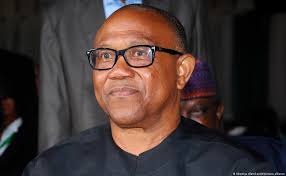Former Governor of Anambra State, Mr Peter Obi, said that the healthcare system in Nigeria is in a very poor state. In a post on his official X account, @PeterObi said over 70 per cent of primary healthcare centres are nonfunctional, lacking both adequate facilities and manpower.
Speaking as the keynote speaker at the ANAP Doctors in North America and the University of Nigeria Alumni lecture in Lagos at the weekend, Obi said the most critical measures of development are not physical infrastructure, such as road construction or buildings, but health, which is measured by the Human Development Index (HDI).
According to him, this is why health is wealth along with education and lifting people out of poverty. He said: “In Nigeria today, the healthcare system is in a very poor state.
Over 70% of primary healthcare centres are non-functional, lacking both adequate facilities and manpower. “Currently, Nigeria has only about 10% of the doctor-to-population ratio recommended by global standards. “In contrast, countries like India, which once faced similar challenges, have made significant improvements.
“Despite having a population about seven times larger than Nigeria’s, India has achieved approximately 80% of the recommended doctor-to-population ratio and is actively expanding its network of medical colleges. “Comparable nations, including several in Africa, have invested heavily in healthcare and education, recognising their critical roles in national development.
“For example, South Africa, with a population of about 63 million, has allocated a healthcare budget for the 2024/2025 fiscal year that is more than twice Nigeria’s total healthcare budget for the five-year period from 2021 to 2025, despite Nigeria having a population of over 200 million.
“We have borrowed heavily to support our healthcare system, securing several billions of dollars from multilateral agencies. However, these investments have not resulted in significant improvements.
“For instance, from the World Bank alone, Nigeria has borrowed over $11 billion between 2023 and now for healthcare and medical education. “Our budgeting and borrowed funds should be directed towards the critical needs of healthcare, education, and poverty alleviation.
“We must urgently realign our planning, budgeting, and expenditures to ensure that borrowed funds are channelled towards areas of critical need—such as healthcare, medical education, and access to quality care that will truly benefit the population and create a lasting, positive impact.
“My sincere gratitude to the university alumni for organising the effort to raise $1 million for this noble initiative. I commend each of the alumni, professionals, and friends of UNCOMMA for their commitment and generosity in taking this bold step to give back.”















